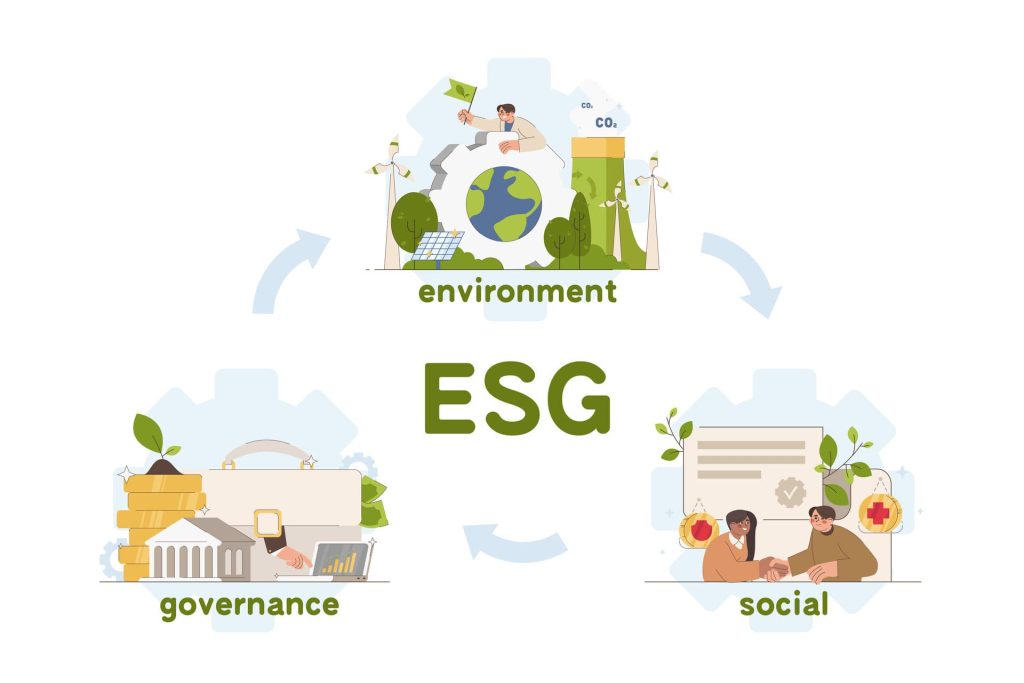As 2023 closes, the investment narrative tilts towards a more responsible horizon. The urgency of sustainable and impact investing has intensified. For wealth management companies and their clients, this shift is a favorable moment for growth.
Unearthing the ESG Potential
The investment landscape is constantly shifting. Climate change and frequent natural calamities are no longer a distant warning. The world is experiencing these phenomena right now. Ignoring this can mean a huge risk for investors.
At the same time, wealth management is now adjusting strategies to comply with these changes. They now consider societal gaps and corporate transparency. Corporate governance is no longer only about profitability. Ethical concerns are fast becoming important in wealth management strategies.
These changes pose direct challenges to wealth, security, and the future of investments. If industries sidestep these shifts, the effects can be serious. These lead to brand devaluation, legal complications, and significant financial losses.

What is ESG Investment?
Enter ESG investing. ESG stands for environmental, social, and governance. This investment type involves evaluating companies based on these three crucial criteria. The combination of this financial practice and traditional financial metrics makes value-based decisions.
For wealth managers, it’s not only a trend. It’s the answer to today’s investment complexities. ESG isn’t only about being eco-friendly. It’s a comprehensive approach that aligns profits with the following dimensions:
Environmental (E)
Besides green initiatives, this investment principle ensures the long-term feasibility of industries. This aspect considers how a company’s operations impact nature and the environment. It examines issues such as
- Carbon footprint and emissions
- Waste management
- Resource conservation
- Adaptation and response to climate change
Social (S)
This dimension assesses how a company manages relationships with its stakeholders. They include the employees, suppliers, customers, and the communities it operates in. Investment in corporations prioritizing relationships and community creates a trustworthy and sustainable brand.
- Labor rights and conditions
- Product safety and quality
- Corporate social responsibility initiatives
- Diversity and inclusion practices
Governance (G)
Transparent corporate structures that promise the durability of your investments. Governance evaluates the internal systems, procedures, and leadership structures of a company. It concerns
- Board composition and diversity
- Executive compensation
- Shareholder rights
- Ethical conduct and compliance
The Rise of ESG Investing
Emerging global challenges call for growing demand for more responsible corporate governance. Sustainable business practices address climate change, social inequalities, corporate scandals, and other issues.
ESG isn’t only a temporary investment mindset. It’s a fundamental shift in how we view and approach investing.
The promise of ESG doesn’t end in risk mitigation. HNWIs can see this as an opportunity to boost their wealth management business plan. They can use the sustainable framework to help responsible companies grow. With the help of wealth managers, they can make a profit while addressing global change.
Why is ESG Investing Important for Wealth Management?
ESG embraces a new way of investing philosophy. This approach factors in a wide range of considerations, including:
A Holistic View of Companies
ESG investing offers a more complete view of a company’s composition. It sheds light on health, practices, and long-term sustainability. It helps investors identify potential risks and opportunities. These might not be immediately detectable from a traditional financial analysis.
Aligning Values with Investments
For many, what enticed them to ESG investing is its ability to align investment with your values. Through ESG-focused portfolios, investors can support companies that are making positive changes. These changes will contribute to society and the environment.
Risk Management
Companies neglecting ESG factors give way to exposure to many factors. These include regulatory fines, reputational damage, or operational inefficiencies. By integrating ESG criteria, investors can mitigate these risks.

Potential for Competitive Returns
Contrary to some misconceptions, ESG investing doesn’t mean compromising on returns. Many studies suggest that companies with strong ESG practices showcase solid financial performance.
Ethical Investing with Agility Research
Turn global problems and challenges into strategic wealth preservation opportunities. With ESG getting the spotlight in the investment sector, now’s the time to be more than investors. It’s also time to be visionaries who profit from ethical and sustainable businesses.
If you’re a wealth manager, are you ready to guide our clients down this revolutionary path? Or if you belong to the HNWIs, are you eager to invest in value-driven companies?
Agility Research can help you with this journey. With the ESG-centric approach, your investment portfolio is in “good” hands. You can now profit from companies championing a better future.


